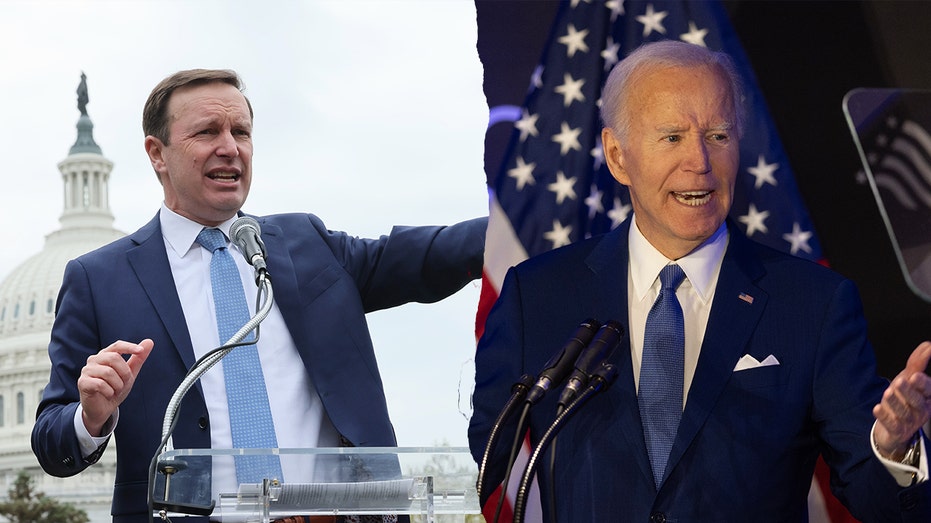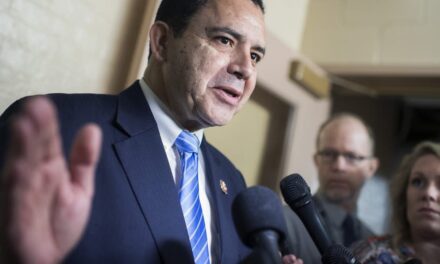In recent political discussions, a prominent Democratic senator has voiced concerns regarding President Joe Biden’s continuation in the 2024 presidential race, suggesting that he should have withdrawn from the contest much earlier than he did.
The senator, who has opted to remain anonymous due to the sensitive nature of the comments, pointed out that Biden’s approval ratings have been consistently low, and the ongoing challenges facing his administration have led to a substantial amount of uncertainty about his viability as a candidate in the upcoming elections.
“The reality is, we are in a difficult position as a party,” the senator stated. “Poll after poll indicates that voters are eager for fresh leadership; it’s concerning that we are still rallying behind a candidate who may not have the enthusiasm of the base.”
Many Democrats are worried about Biden’s age and the perception that he may not be the most dynamic choice moving forward. With the 2024 election fast approaching, discussions about potential alternative candidates have begun to surface quite intensely within party circles.
“The senator’s comments reflect a growing concern among party leaders,” said a political analyst. “It’s clear that there’s a significant faction within the Democratic Party that believes it is time for new blood at the top of the ticket.”
Supporters of Biden argue that his experience and the legislative accomplishments of his administration—including significant infrastructure investments, pandemic recovery efforts, and substantial progress on climate change—should be celebrated rather than overshadowed by concerns about his age.
Some insiders have also pointed to Biden’s ability to unite a fractured Democratic Party, crediting him with the successful passage of the American Rescue Plan and the Bipartisan Infrastructure Law.
Questioned about the senator’s assertions, White House Press Secretary Karine Jean-Pierre stated, “The president is focused on fulfilling his promises to the American people, and he’s confident in his ability to win the support of voters.”
However, this sentiment does not erase the mounting pressure from within Biden’s party. While many Democratic leaders maintain loyalty to the president, the midterm elections strong indicators demonstrating an electoral challenge ahead have sparked worry.
The discontent among some Democrats reflects broader concerns about the party’s direction and ability to mobilize voters, particularly among younger demographics who feel disengaged from current leadership.
Calls for new candidates have increasingly gained momentum, with names such as California Governor Gavin Newsom and Michigan Governor Gretchen Whitmer circulating as potential alternatives to Biden. These individuals are often regarded as more aligned with the younger voter base, raising questions about the president’s appeal to this crucial demographic.
Senators and Congress members have also increasingly raised their voices in favor of bolstering party outreach and improving communication strategies, emphasizing the necessity for the Democratic Party to resonate with a broad spectrum of voters ahead of the elections.
The economy, inflation, and ongoing societal challenges remain at the forefront of constituents’ minds, leaving many Democratic leaders frustrated with what they perceive as Biden’s lack of proactive engagement on these critical issues.
Furthermore, the senator emphasized the necessity for a leader who embodies not only the values of the Democratic Party but also the vigor and energy needed to resonate with a rapidly changing political landscape.
“We need someone who can inspire voters and ignite the spirit of change that historically resonates with our base,” the senator added. “Biden has served and continues to serve his country, but perhaps it’s time for him to reflect on the broader implications for the party and the nation.”
In a sociopolitical environment where dissatisfaction amongst voters is palpable, Biden’s team is tasked with reinforcing public support for not just the incumbent president, but for the party as a whole.
The upcoming elections will serve as a litmus test for the Democratic Party’s direction and Biden’s positioning as a candidate, raising serious questions about whether he can adequately respond to the needs and aspirations of a diverse electorate.
While the senator’s remarks have certainly sparked debate, the ultimate decision remains in the hands of the voters and their assessment of the circumstances surrounding Biden’s campaign. The landscape leading into the elections will undoubtedly be influenced by public opinion and party morale, creating pressure to adapt to the shifting dynamics.
As rival candidates from the Republican party emerge, establishing their platforms and courting voters, the stakes become increasingly high for the Democratic Party. How effectively the party responds to the internal concerns voiced by members such as the senator will ultimately determine its success, or lack thereof, in the 2024 presidential race.
Furthermore, analysts predict that the Democratic Party may face formidable challenges in both mobilizing its base and appealing to independent voters, who play an essential role in deciding elections. The key issues of abortion rights, healthcare, climate change, and economic stability will likely form the backdrop against which candidates measure their relevance to the electorate.
The implications of the senator’s statements and the resulting discourse surrounding Biden’s leadership offer a glimpse into the future of Democratic politics as the 2024 election cycle looms on the horizon. Observers will be keenly watching to see how this conversation influences voter sentiment and candidate dynamics as we approach the pivotal moments leading up to the elections.
In conclusion, while Biden’s tenure has seen progress, the mounting doubts expressed by party leaders like the aforementioned senator reveal deep fractures within Democratic ranks. The path forward remains unclear, and the actions taken or not taken in the coming months will prove critical in shaping the future of not just the party, but the nation as a whole. The Democratic leadership must earnestly confront these challenges and decide whether to stand firmly behind President Biden or explore other avenues that could revitalize the party’s connection with the electorate as they navigate through complex political waters.
































